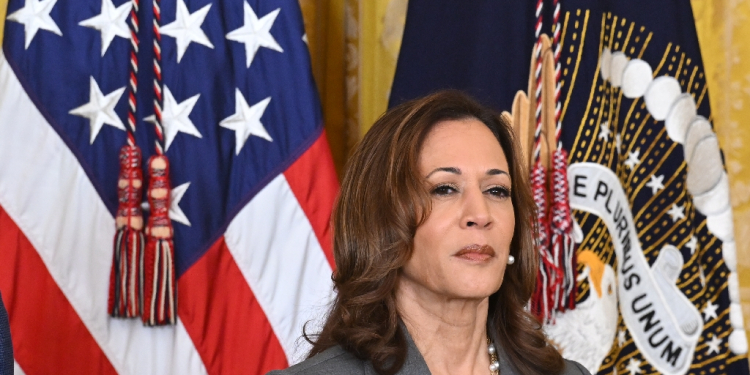Washington (AFP) – Kamala Harris is making her final stand against Republican Donald Trump from the center, gambling that swing voters will want a moderate option as the US presidential election comes down to the wire. It’s a stance that has left the 59-year-old vice president open to attacks of being both fickle and vague in her policy positions. But with Americans polarized and her opponent taking ever more extreme stances, Harris is betting that she can win the White House by mobilizing undecided voters, rather than by pandering to the left.
Since replacing President Joe Biden at the top of the Democratic ticket in July, Harris has distanced herself from some of the progressive positions she had endorsed just a few years ago, during her primary run for the 2020 contest. “She seems so much more comfortable in explaining her positions now,” says Robert Rowland, a professor of political communications at the University of Kansas. Harris no longer promises to ban fracking, for example — even though she has opposed the highly polluting method of gas and oil extraction in the past. The former senator from California also promises to tighten immigration policy.
She cites analyses from Goldman Sachs to promote her economic program and boasts the support of former vice president Dick Cheney — a duo that ruffles the feathers of even the most centrist Democrats. And, since hitting the ground running on the campaign trail, Harris has avoided talking about the death penalty — even though she has long called for its abolition.
She has walked a delicate line on the politically explosive issue of guns in the United States. She promises tighter gun controls — banning semi-automatic rifles and calling for stricter background checks on Americans who purchase firearms. But in recent weeks, Harris has frequently mentioned that she is a gun owner herself. “If somebody breaks in my house, they’re getting shot,” she quipped to US talk show queen Oprah Winfrey.
At the same time, she vigorously defends abortion rights, proudly recalls having been one of the first politicians to officiate same-sex marriages when she was a district attorney in San Francisco, and intends to raise taxes on the wealthy. Trump has taken delight in calling her the “greatest flip-flopper,” and, despite her clearly moderate positions, insists that “Comrade Kamala” is a “Marxist.” Harris — who has never been a left-wing firebrand in the Democratic Party like Senator Bernie Sanders, for example — insists that her values have not changed.
Unlike Trump, she refuses to resort to personal insults — though she did not hesitate to exploit his weaknesses during their September 10 debate. The vice president is running an extremely disciplined campaign, with well-rehearsed speeches, targeted travel, and interviews with people sympathetic to her cause. She’s not a fan of big TV interviews, and the Trump camp has taken pleasure in mocking her sometimes abstract, even abstruse remarks — despite its own candidate’s frequent linguistic wanderings.
“She has to be careful not to be perceived as someone who does not have a core,” says Democratic strategist Melissa DeRosa. Merely being against Donald Trump “is not enough,” DeRosa says, calling for Harris to reach out to more voters with more concrete proposals. “Her travel plans need to reflect the urgency of the calendar… It needs to be less celebrities, more union halls and suburban women,” she adds, pointing to Hillary Clinton’s 2016 loss, which some have concluded came after she did not spend enough time in key battleground states.
Rowland says he doubts that the accusations of inconsistency really harm the vice president, however — because they also apply to Trump and his running mate, J.D. Vance. The former president is known to change his mind often and abruptly. As for Vance, he rallied behind the 78-year-old billionaire after publicly calling him an “idiot” and even privately wondering if he wasn’t the “American Hitler.”
© 2024 AFP









